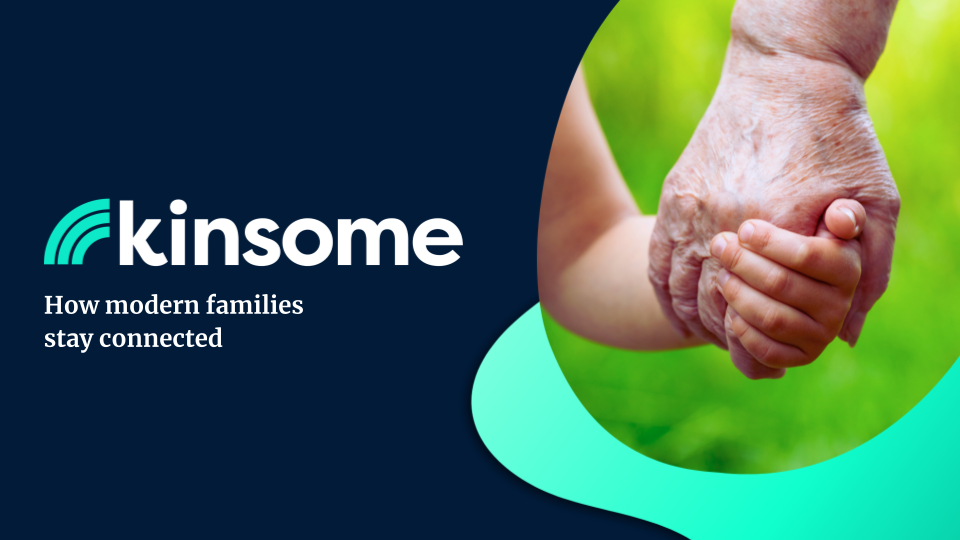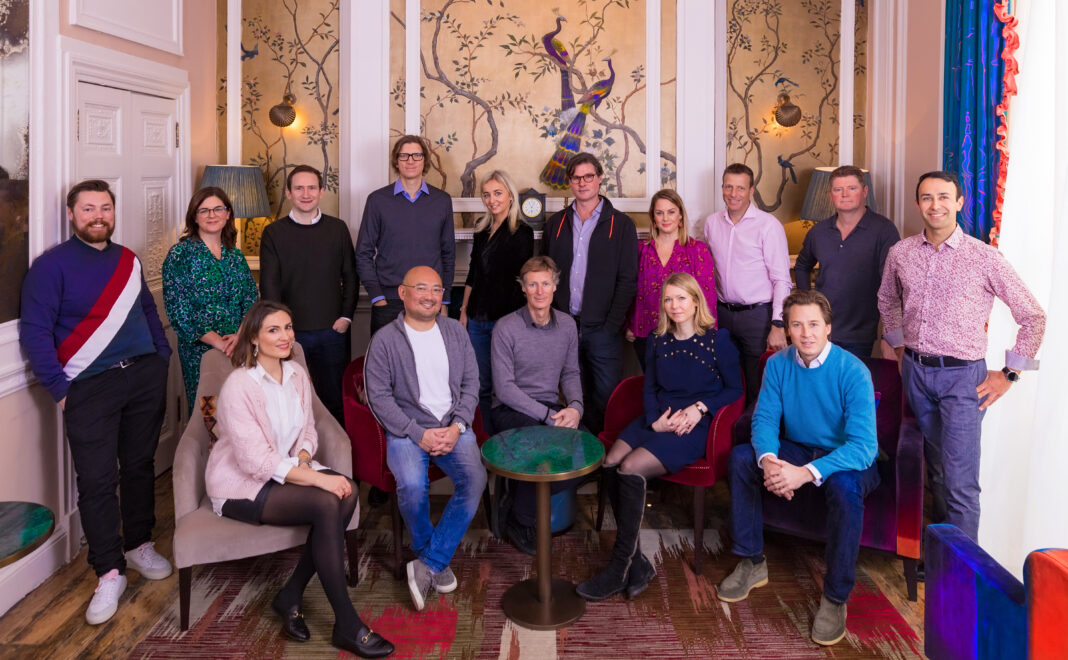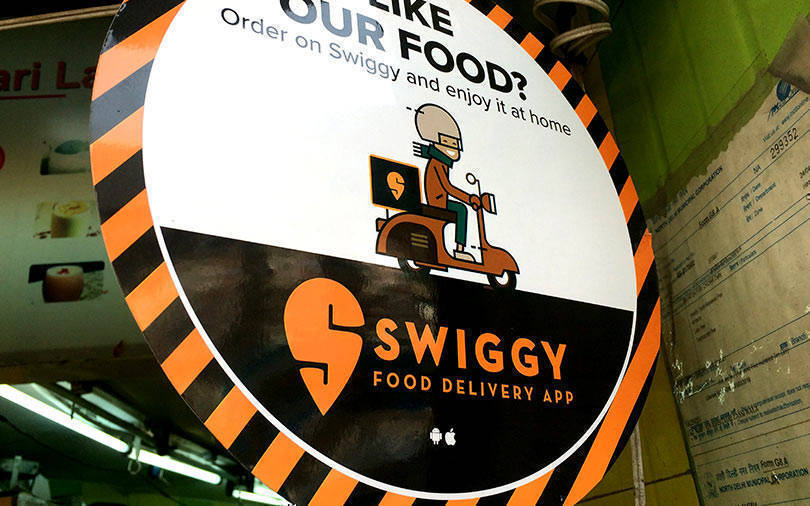Kinsome, developed by Eben Pingree and team, connects children with their grandparents through interactive games and AI-powered conversations

Eben Pingree, a former executive at Session M, was informed of his mother’s Alzheimer’s diagnosis more than a year ago. The exact diagnosis was given to his father-in-law two days later.
Pingree and his co-founders Mike Gerbush, Ashley Hawking, and Brianne Baker developed Kinsome. This communication platform is designed to help children and grandparents share daily updates and preserve cherished memories. This was done to create lasting memories and help his three young children bond with their grandparents.
The application has been in public beta since last year and was officially released on Thursday, just before Grandparents Day.
The company disclosed to TechCrunch that it had secured $1.2 million in pre-seed funding in conjunction with the launch announcement. It is supported by a remarkable group of investors, including Ivan Yuen, the co-founder of Wattpad, and angel investors with experience at CashApp, Doordash, Draftkings, GitHub, HubSpot, and FitBit, among others.

Several family-oriented private messaging applications, including Honeycomb, Kinnect, Kinzoo, and Stars, are designed to preserve conversations and store memories. The limited attention spans of young children can make it difficult to engage them in phone conversations with their elder relatives. Additionally, it may be challenging for younger children to establish a connection with grandparents who are not seen regularly.
Nevertheless, Kinsome thinks its primary differentiator and selling point is “Kinzey,” an audio-first AI companion powered by OpenAI’s GPT API, OpenAI’s Whisper, and ElevenLabs Speech Synthesis. Kinzey is designed to assist children and grandparents in expressing themselves, which could benefit younger children and grandparents who struggle to maintain conversations due to the generational gap.
Kinzey can offer real-time explanations for terms the grandparent may not know, suggest conversation starters, and provide inquiries. For example, Kinzey can explain Taylor Swift’s identity if a descendant discusses her. The company asserts that its AI can recall previous conversations, which it can leverage to elucidate topics and foster more robust connections.

Kinsome provides diverse interactive games, icebreakers, and warm-up activities to maintain children’s attention. For instance, “Emoji Chronicles” motivates children to articulate their day through emoticons, and Kinzey infers their responses while posing inquiries to gain a deeper understanding. If the child employs a dog emoji, Kinzey may inquire, “Please elaborate on the dog,” to which the child may respond with a voice recording.
Kinzey persists in asking inquiries to maintain the conversation and accumulate adequate information. The AI may propose inquiries for descendants to pose to their grandparents, thereby motivating the grandparents to contemplate their own lives and share anecdotes that are pertinent to the child’s unique daily experiences. For instance, the grandparents may be asked to disclose whether they have ever participated in a talent performance.
Kinzey transmits the highlights to the elders after the children have recorded their responses.

Kinsome is intended to be user-friendly and accessible to grandparents, so they are not obligated to obtain an application or retain a password. Rather, they receive a text or email containing a link to a written transcript of all the queries Kinzey posed and the responses, which includes all voice recordings.
Additionally, parents must register their child before using the application, and they receive a text notification when their child sends a message.
Grandparents are permitted to record a response. The grandkid will be able to view the responses in the in-app messenger. In the chat, both parties can type or voice record communications.
“We have received inquiries regarding the usability of the platform with an older demographic, but we have not observed any significant issues,” Pingree stated in an interview with TechCrunch. “I believe that we are in a position to benefit because we are targeting children between the ages of six and 11. On average, their grandparents are in their 60s and 70s and have been using smartphones and tablets for over a decade.” In general, they have demonstrated exceptional proficiency in utilizing the grandparent side of the platform, which we have intentionally configured to be highly user-friendly.

Kinsome is developing several new features, one of which will enable children to upload photographs from shared family photo albums. This will provide children with additional conversation starters and enhance their communication skills by enabling them to incorporate narration into the photographs that their parents capture of them. (Parents can determine which images their children may utilize.)
“The concept is that it will serve as an additional warm-up activity for children, allowing them to examine photographs that their parents have uploaded to a specific album and provide a narration of the events.” “So much of the work that needs to be done with young children is to provide them with topics of conversation, and then they will open up,” Pingree stated.
Additionally, Kinsome intends to implement a premium subscription priced at $4.99 per month and supplementary monetization features, including a gifting feature that enables grandparents to send birthday presents that their grandchildren have requested. Additionally, it will provide multilingual support in the future, enabling users to communicate with Kinzey in various languages.
At present, Kinsome is exclusively accessible through the App Store. The Android version is scheduled to be released shortly.



